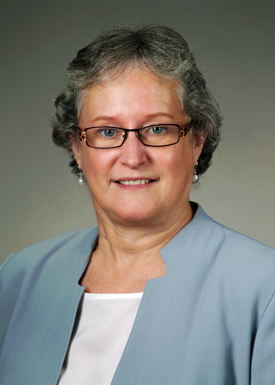


The “Biology of Fatigue” workshop brings ME/CFS researchers together with a broad array of other fatigue researchers.
Although fatigue has traditionally been scorned in medical research. studies show that ME/CFS – the “chronic fatigue syndrome” – is significantly more functionally disabling than multiple sclerosis, heart failure, diabetes, depression, and others.
ME/CFS may be the quintessential fatigue disorder but it is not alone in its ability to produce severe fatigue. Despite the fact that “Profound and debilitating fatigue is the most common complaint reported among individuals with autoimmune disease “, a 2015 survey noted that “data on the prevalence of severe fatigue across multiple rheumatic diseases…is missing“. The 2015 study found severe fatigue was present in 41-57% of patients with inflammatory rheumatic diseases (rheumatoid arthritis, systemic lupus erythematosus, ankylosing spondylitis, Sjögren’s syndrome, psoriatic arthritis) and 82% of fibromyalgia patients.
Similarly, a 2017 fatigue in neurological diseases review reported that “The tremendous consequences of fatigue are consistent across neurological diseases, as is the uncertainty concerning its underlying pathophysiological mechanisms.” Fatigue, it stated, “represents one of the least-studied and least-understood conditions“.
For its part, cancer-related fatigue was found in 1/3rd of cancer survivors up to 6 years post-treatment and was associated with high levels of disability. Although severe fatigue is found in many diseases, virtually every review article prominently states how little we know about it.
That clearly didn’t pass muster with Vicky Whittemore Ph.D. – who oversees epilepsy and ME/CFS portfolios at the NIH – and National Institute of Neurological Disorders and Stroke (NINDS) Director Walter Koroshetz M.D.. They knew fatigue was a ubiquitous but poorly understood symptom that the NIH had never tackled in an organized manner and wanted that to change.
In 2018, they gathered a committee together and went to the Common Fund – a branch of the NIH that funds interdisciplinary activities. They proposed bringing together a diverse array of perspectives from across the NIH to better understand fatigue.
The Common Fund liked their idea of an interdisciplinary fatigue initiative and asked them to create a five-year program – but then they hit a strange roadblock. So much interest from so many different quarters came in that the group couldn’t agree on a common set of deliverables. With Vicky swamped with ME/CFS work, it was all too much and the initiative was put aside. (Why one must ask, is Vicky Whittemore tasked with overseeing two disease portfolios? Is having one person working half-time on ME/CFS at the NIH enough?).
Then came long COVID and a new emphasis on fatigue. Seizing the moment, Whittemore and Koroshetz reconstituted the Working Group back and proposed creating a Neurobiology of Fatigue Initiative in the NIH Blueprint for Neuroscience Research Program. After receiving the funding for a workshop, they teamed up with the Sleep Research Society to co-produce the workshop.
The Workshop
ME/CFS is amply represented in the two-day workshop but otherwise, familiar faces are rare, and that’s a good thing. Not only does a broad interest exist in understanding the biology of fatigue but the Workshop will introduce other fields to the work being done in ME/CFS (and vice-versa). (Check out the workshop agenda here.)
About 20% of the 33 talks are given by people who have published on ME/CFS. Nancy Klimas, Avindra Nath, and Anthony Komaroff are amongst the moderators, and Walter Koroshetz will be chiming in.
We should be able to get up to date on the Metabolic Trap hypothesis (Ron Davis), the role inflammation and the basal ganglia play in fatigue (Andrew Miller), molecular and cellular biology (Ian Lipkin), omics research (Ron Tompkins), exertion (Betsy Keller), neuroimaging (Jarred Younger) and immune dysfunction (Maureen Hanson).
Some of the most interesting talks, though, are coming from outside the ME/CFS field. Many of them bear on subjects of interest in ME/CFS. For instance, “The Role of the Brainstem in Slow-Wave-Sleep Control” hits on one of the key brain organs in ME/CFS research. Patrick Fuller’s talk on the hypothalamus jives with Angus Mackay’s two hypothesis papers on ME/CFS and long COVID, and recent conjecture by Lipkin and Komaroff that a fatigue nucleus in the brain exists there. Fuller is a specialist on the role the hypothalamus plays in energy production and sleep.

Kelly Drew, a University of Alaska researcher will present on hibernation and fatigue (Image by Pixamio from Pixabay).
If you thought that ought only ME/CFS researchers were interested in hibernation (like I did), you would be wrong. University of Alaska researcher, Kelly Drew, has published dozens of papers on the topic. Her “Studying Hibernation Biology to Gain Insights into Fatigue” talk has obvious overlaps with Robert Naviaux’s and Marian Lemle’s work on hibernation in ME/CFS.
Glenn Wylie is a major fatigue researcher who has pumped out dozens of papers on fatigue in multiple sclerosis, Gulf War Illness, and traumatic brain injury over the past ten years. His talk on “Evidence for a Network of Fatigue-Related Areas in the Brain” will surely have significant ramifications for ME/CFS.
Given the growing evidence of microbiome problems in the guts of people with ME/CFS, “The gut-brain axis” talk by Gerard Clarke – a very well-published IBS (irritable bowel syndrome) researcher – should provide some interesting insights. Likewise, Harvard researcher Dragona Rogulja’s talk on “Reactive Oxygen Species in the Brain and Periphery” appears to be a nice fit with the recent Paul/Lemle/Komaroff/Snyder paper on the role free radicals may play in ME/CFS and long COVID.
The “Role of Glympathics in Sleep and Fatigue” and the “Cerebral spinal flow and Slow Wave Oscillations During Sleep” talks appear to hearken back to Raymond Perrin’s work in ME/CFS. Hugo Critchley’s talk on psychomotor slowing – which describes the slowing of fine-motor movements – focuses on a phenomenon also found in ME/CFS. Other presentations on autoimmune fatigue, non-refreshing sleep (by Janet Mullington), immunomodulators, altered sensory processing, the path from acute to chronic infection, and exercise-induced fatigue have obvious connections to ME/CFS.
The Workshop demonstrates that while ME/CFS researchers often seem to exist in a niche of their own, their broad emphases fit with what fatigue researchers are studying in other diseases. The workshop will do something we’ve been wanting to accomplish for years: expose the work of ME/CFS researchers to the work of others outside the field and vice versa.

Vicky Whittemore led the drive to make the workshop happen.
Let’s hope the Workshop sets the stage – in this age of long COVID – for much more collaboration between ME/CFS/FM researchers and other fatigue researchers, and more emphasis overall on fatigue research at the NIH. While the emphasis on “fatigue” may grate a bit, please note that fatigue is the hook that draws other diseases into our orbit and us into theirs. It provides the opportunity, for instance, for us to bring the concept of post-exertional malaise (PEM) into the discussion of a broad array of fatiguing diseases.
Vicky Whittemore hopes the workshop will “identify gaps and opportunities for future research and new collaborations across disciplines and disease areas…and foster and support new research on fatigue going forward.”
It’s hard to imagine that it won’t do that. With its strong agenda, Vicky Whittemore and Walter Koroshetz have created a timely workshop. Let’s hope it’s the first step in a major, multi-year, NIH-funded Fatigue Initiative.
The “Beyond the Symptom: The Biology of Fatigue Zoom Workshop” runs from September 27th-28th. Check out the agenda here. Registration is free and open to all. Register for the workshop here.






“It provides the opportunity, for instance, for us to bring the concept of post-exertional malaise (PEM) into the discussion of a broad array of fatiguing diseases.”
My concern is that sometimes researchers don’t have a correct concept of PEM. Fibromyalgia has been shown (when not accompanied by ME) to NOT cause PEM. Rather exercise is actually good for fibro alone and they test like healthy people on this, or even better if the controls are sedentary. My other concern is that so many people/researchers don’t understand about the DELAY of horrific ‘fatigue’ onset after exertion and the continued expression of genes relative to fatigue for days after. That’s really different from regular fatigue, and hard for even a researcher to grasp if they’ have not been studying PEM.
i hope the ME researchers are able to explain PEM and that the others get interested. maybe falls hope, i do not know..
I’ll bet most don’t have the slightest idea of PEM. That’s a term ME/CFS introduced into the medical lexicon. I would hope that delayed onset PEM would be of great interest to other fatigue researchers. Whether or not or to what extent it occurs in other diseases would, I would think, be highly significant regarding what the heck is going on in all these diseases.
I really have felt this about PEM and the lack of understanding of what it really does to us.
Agreed that the delay is a big deal and it’s not widely appreciated. My doc had suspected ME/CFS for a while, but never mentioned the delay, and so I denied the diagnosis for a nearly a year until it finally became much clearer. I likely made myself worse with my normal cardio exercise during this period if confusion.
Exciting stuff, I registered, thanks Cort!
Good!
hi cort or anyone, i wanted to register , even if i can only watch 5 minites. but i do not understand what has to be filled in with registration under:
Pursuant to the Americans with Disabilities Act, if you require accommodations to fully participate in the virtual meeting, please provide details below. (Note: details must be received 7 business days prior to the event.) *???
is this the MASS ME zoom meeting where you wrote abou? or what is the MASS ME webinar? i searched for it, asked around and noboddy knew. thank!!! for anyone who answers.
The Mass Zoom event is in Oct. I’ll be covering that later. Really a great idea by Mass ME to check on what’s happened with the Research Centers.
yes, i hope i can watch a little bit. i am really curious! thanks!
konijn: The disability question pertains to those folks needing accommodation for things like hearing loss or blindness…any kind of disability status that would require the hosts to alter how they presented or how you accessed info. If you don’t need any special accommodations, just type in “none” in that field and your registration will go through.
Fatigue is the worst! I’ll take pain (which is at least partially treatable) to severe fatigue any day. You can function with pain but severe fatigue makes life not worth living. Praying someone figures this out!
100% agree! There needs to be another word or way that describes the sickness that is called fatigue in ME/CFS.
Do not underestimate (headache) pain or itching that can also ruin your life. It’s not a competition to see who has the worst complaints. But severe fatigue can paralyze you completely.
Yet there are many people who can still do a lot with their fatigue. That always surprises me. With ME/CFS that is almost impossible. Also do not forget about the dizziness and weakness.
I think you can experience and distinguish different types of fatigue.
Different types of fatigue were produced at one point.
One was something like cement-legs fatigue, another was flu-like fatigue, cognitive fatigue, and there were a couple of others. Each must correspond to something different…
We definitely need to learn (then explain to EVERYONE) that the “flu-like” fatigue matches the description for normal sickness behavior, which is distinct from both acute inflammation/sickness and normal fatigue. Acute sickness is VERY easy to notice, normal fatigue builds & becomes quite noticeable, but non-acute sickness (behavior) isn’t something we have a good sense of, and it can go unnoticed until it builds up to significant amounts (as in colds that sneak up on us).
It’s incredibly problematic that everyone (including doctors & even us) considers it mostly normal until it reaches high levels & won’t go away. It’s also hidden by acute sickness, even though it happens simultaneously… then we get past the acute phase and consider ourselves out of a sickness state, even though we’re still being immobilized by this evolutionary mechanism, which is continued to be signaled after acute processes recede.
I eventually realized that it’s a missing component for the psychological model of volition & motivation. There are times I can’t get myself to do something simple like get a drink, play video games, even move my leg when it’s in an uncomfortable/painful position… and there’s no competing or anti-motivational factors. I can decide to do something but it doesn’t work, I simply don’t reach activation. A immobilizing gulf opens up that widens the amount of motivation needed to activate.
My father died earlier this year after a few years of dementia, so we knew it was coming & my mom was coping, keeping busy, but several days after she got her 2nd covid vaccination. The next couple days she became majorly depressed and could barely get out of bed. I talked to her (more) about sickness behavior and how it shuts us down & how it might be one component in depression. The immune response (sickness behavior) episode stood out to her and made her much more aware of that mode/feeling. As a result, she understands my chronic “fatigue” much better.
If nobody is properly accounting for this, it’s a giant blind spot that our illness (and many others) can hide within. It’ll take a roundabout path of discovery that someone eventually (possibly decades from now) realizes “Oh these processes together amount to sickness behavior. Wasn’t expecting that, how funny.”
Will there be any recordings for those of us who are time-zone and circadian challenged?
I’m not even in the time zone that I live in, much less one six hours earlier.
Yes, they stated the workshop will be recorded and posted on the NIH website for later viewing. It will take a couple of weeks for post-production.
Yes I’d like to know this too, thanks
It will be recorded and posted – thank goodness! It will take a couple of weeks.
Thanks Cort. Good to know.
Fatigue had absolutely nothing to do with the reasons why the Holmes committee created the 1988 Chronic Fatigue Syndrome definition.
Immune damage and contagion.
That was all that mattered.
Hi Cort,
What do you make of what to me is the perplexing fact that beriberi is seemingly never mentioned in connection with ME/CFS, despite the obvious similarity and despite being well known elsewhere:
https://www.encyclopedia.com/medicine/diseases-and-conditions/pathology/beriberi
Robert Olney,
Thank you for posting link, I had missed previously the link to low stomach HCL
Thanks Cort, this workshop looks fascinating and such interesting speakers – and it seems they have 20 mins each to talk – great!
They should get with the CDC. Over 20 years ago when CDC was supposed to be doing studies on CFS they were doing studies on Fatigue & Pain. Which of course incorporated many other illnesses.
How interesting:
Nothing on hypoglycemia and the effects of oscillating glucose to the brain, heart and liver.
Energy flows and fatigue.
These low blood glucose swings precede diabetes by years/decades.
I was reading about lupus and watching videos of personal accounts.
The opening symptom: waking up feeling like a truck run you over. Then, fatigue and pain all over. Sound familiar?
I honestly couldn’t tell the difference. And guess what? The diagnosis is just as shady – supposedly an antibodies test, but this is general, not to a specific antibody. And you can have a negative test result and still be diagnosed.
I think depending on the specialty of the doctor, depends what you end up diagnosed with.
And how about fatigue and thyroid function?
Maybe that is what all these conditions share…
A loss of energy production.
And also – who is the brave doctor/researcher that is going to start measuring glucose in conjunction with the cathecholamines during the tilt test?
Had these neurocardiologist had more training in endochrinology….
Not mentioned is the fatigue factor in Ehlers-Danlos Syndrome. One side or the other (depending on what study you read) reports that 80% of (usually Hypermobile type) EDSers experience chronic fatigue. Various theories abound, but one of the most common is the continuous extra energy needed to stableize a wobbly body because of the impaired connective tissue.
In my own quest for relief from ME/CFS, I have found many malfunctioning areas and do wonder if the problem is multifactorial and ‘fixing’ just one area will not be the cure. The mind, the body, food, sleep, exercise, infection and interference–always looking to find the ’cause’…
(M) You are exactly right, depends on what specialty the doctor has is what one gets diagnosed with, I have a whole list and if the test happens to be a false positive they all want to treat you. Remember they are practicing medicine.
I read once that Nancy Klimas was working on an insulin that could be (snuffed) not sure proper terminology as someone found glucose shortage was in the brain.
An interesting metric to look at in all these fatigued states is metabolic rate, by measuring oxygen and CO2
And you can do that within ME/CFS people, by grade of severity – find correlations (I would think the lower the metabolic rate = the more severe).
And if there are changes to these measurements before and after activity, PEM, etc.
Is this part of the measurements the Workwell group takes in their two-day assessments? They do oxygen – are they also looking at CO2?